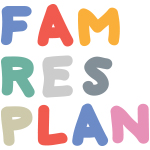Edukacijsko-rehabilitacijski
fakultet Sveučilišta u Zagrebu
[ Specifična obilježja
obitelji u riziku: doprinos planiranju
kompleksnih intervencija ]
7th European Conference on Mental Health, September 2018
Sunday, 30. September, 2018.
Member of FamRes team, assistant professor Miranda Novak gave an oral presentation during the 7th European Conference on Mental Health under the title „Family characteristics and family resilience of adolescents with mental health problems” (presentation was jointly prepared by the authors Novak, M., Ferić, M., Paradžik, Lj.). Three-day conference has gathered people from more than 30 world countries and has included 120 oral presentations.
Presentation is available here.
Book of abstracts is here.
Abstract:
Sažetak:
Family support and quality communication of parents and children, based on caring and close relationships, create safe environment and a stepping-stone for facing normative challenges in the period of adolescence. Assets and resources within the individual, family and environment facilitate positive development of youth. Parenting and family processes play a crucial role in mental health wellness of offspring. It is not surprising that newer trends in research recommend parallel interventions directed to both individuals and system as a whole. This paper is a part of project “Specific characteristics of families in risk: contribution to complex intervention planning” financed by Croatian Science Foundation.
Objective of this paper is to determine family characteristics, family risk and protective factors in the sample of adolescents being admitted in mental health clinic. After the intake interview, adolescent coming in facility because of mental health issue and one of the parents were asked to fulfill the battery of questionnaires. Family resilience was measured with the Family resilience scale, adapted from FACES IV and Sixbey, constructed to measure three separate family dimensions: family communication and problem solving, family belief system and family organization. Level of mental health problems was screened with Youth Self-Report. Altogether, thirty families have given their consent to participate in the study and data for both adolescents and one parent was collected.
Paper will present specifics of family characteristics and family resilience of adolescents with diagnosed mental health issue. General population youth perceives family resilience quite high, with special accent on family organization while youth in risk reports upon high family belief system and lower family organization than general population. Results are indicating that work with adolescents should also comprise the family component in order to make the preventive interventions more effective.

